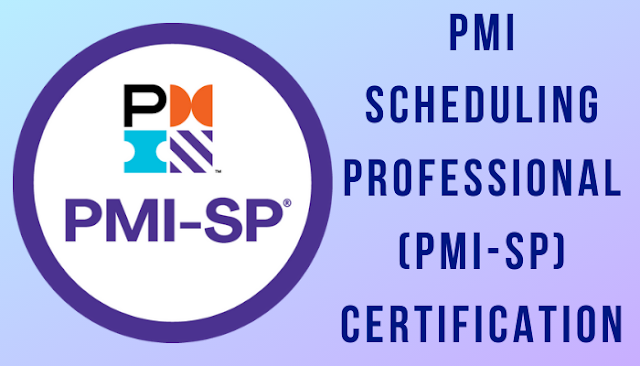The PMI-SP certification recognizes the individual’s unique expertise on the project team while demonstrating the recognition and value the role gives to the project management profession. In this Scheduling Professional role, an individual has more help in the specialized area of developing and managing the project schedule than a familiar practitioner and holds a basic level of competence in all areas of project management.
Earning PMI-SP Certification
Meet the requirements outlined in one of the paths. You can pursue the PMI-SP credential by passing the PMI-SP certification exam and, once certified, remaining confined to professional development. A globally accepted certificate, PMI-SP certification, can help you earn a higher salary and make you more appealing to possible employers than your non-certified peers.
PMI-SP Certification Exam Overview
The PMI-SP certification exam is a 3.5 hours test that concentrates on five key project scheduling competencies: schedule planning and development to schedule closeout. Given the PMI-SP certification exam's rigorous content, even the most experienced project scheduling professionals are advised to spend sufficient time studying and preparing for this test.
PMI-SP Certification Preparation Materials
To get excited, review the detailed PMI-SP certification exam content outline and handbook, both of which may be downloaded from PMI's website. Once you thoroughly read the content and structure of the exam, you may utilize several different types of study resources, including:
- Preparation courses offered by your local PMI chapter.
- PMI publications outlining professional practice standards.
Because all 170 questions on the PMI Scheduling Professional certification exam are multiple-choice, you may also benefit by immediately reviewing best practices for answering this type of question. This short strategy for multiple-choice questions video lessons can help.
Benefits of PMI Scheduling Professional (PMI-SP) Certification
PMI-SP (Scheduling Professional) certification is aimed at schedulers, planners, planning engineers, and planning engineers. However, PMI-SP is equally beneficial for any engineer or a manager involved in project scheduling and desires to improve his/her scheduling skills.
PMI-SP certification training prepares you for the PMI-SP exam and makes you proficient in creating schedule strategy, schedule planning, development, schedule monitoring, reporting, and closing. Hence, this is a significant credential to own, which is also globally recognized and demanded.
Further Benefits of PMI-SP Certification:
- You learn how to plan and schedule small to large and complex projects.
- You learn how to perform forensic analysis on your project schedule.
- You acquire the ability to foresee and control the resource conflicts.
- You build your critical scheduling skills.
- Employers can trust that you can effectively contribute to project scheduling tasks.
All Rounded Benefit:
By obtaining the PMI-SP credential, you can not only work better at your current company, but you can also aim higher positions where your PMI-SP certification will make you stand out as a project scheduling expert.
If you already hold PMP certification, the PMI-SP certification will surely enhance your job prospects. It will bring confidence in you that you can manage the project schedule at an expert level.
First, you will take PMI-SP exam preparatory training from me or anyone else. Second, you will fill up an online exam application form. Once approved, you can schedule the exam as per your availability. You can even sit in the exam from the comfort of your home.
Why Does a PMI-SP Credential Holder Earn More?
Whether a company wants to achieve a new organization-wide software solution or coordinate an entire organizational restructuring, PMI-SP credential holders are the people for the job. Those with the PMI-SP certification are valuable assets, and it looks like companies worldwide are getting the hint.
It is expected by 2027, there will be 90 million project management-related job roles that require to be filled, according to the Project Management Institute’s (PMI) Earning Report. So, in less than a decade, there will be staggeringly high interest for PMI-SP certified individuals, but will there be a workforce to fill them? This requirement is why many Scheduling Professionals are pursuing the certification.
Maintaining PMI Scheduling Professional Certification
After earning your PMI-SP certification, you will need to participate in professional development to maintain this credential actively. Within every three years, PMI-SP certification holders must complete 30 professional development units (PDUs). PMI-approved PDUs include taking professional development classes, participating in relevant project management organizations, doing project scheduling volunteer work, and making formal presentations regarding project schedules.








0 comments:
Post a Comment